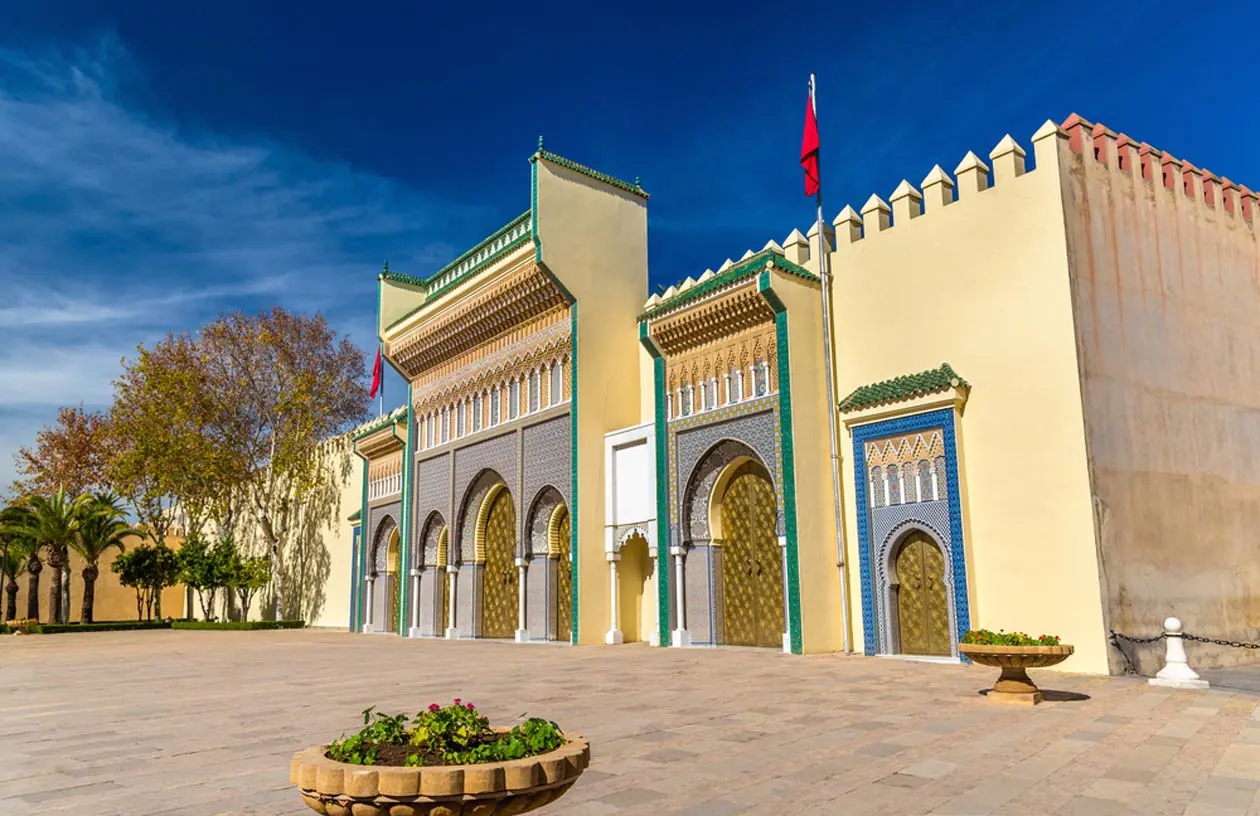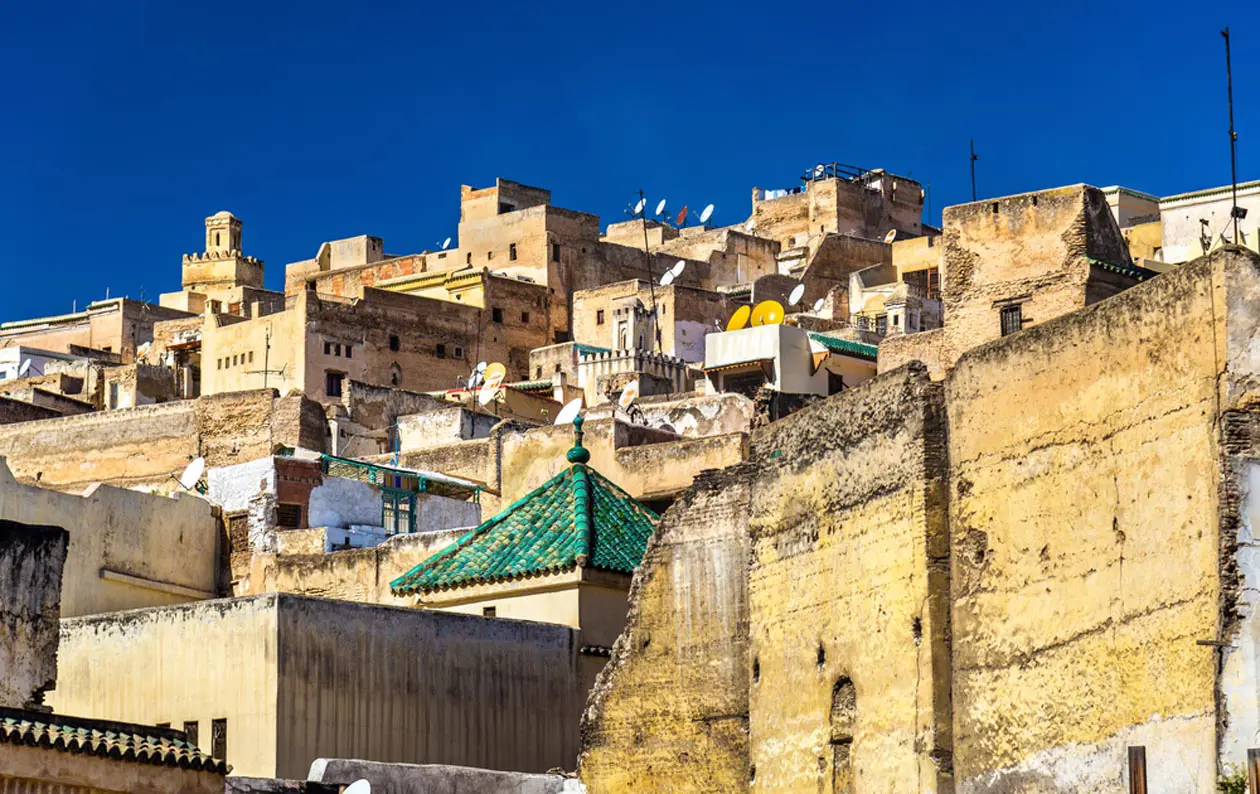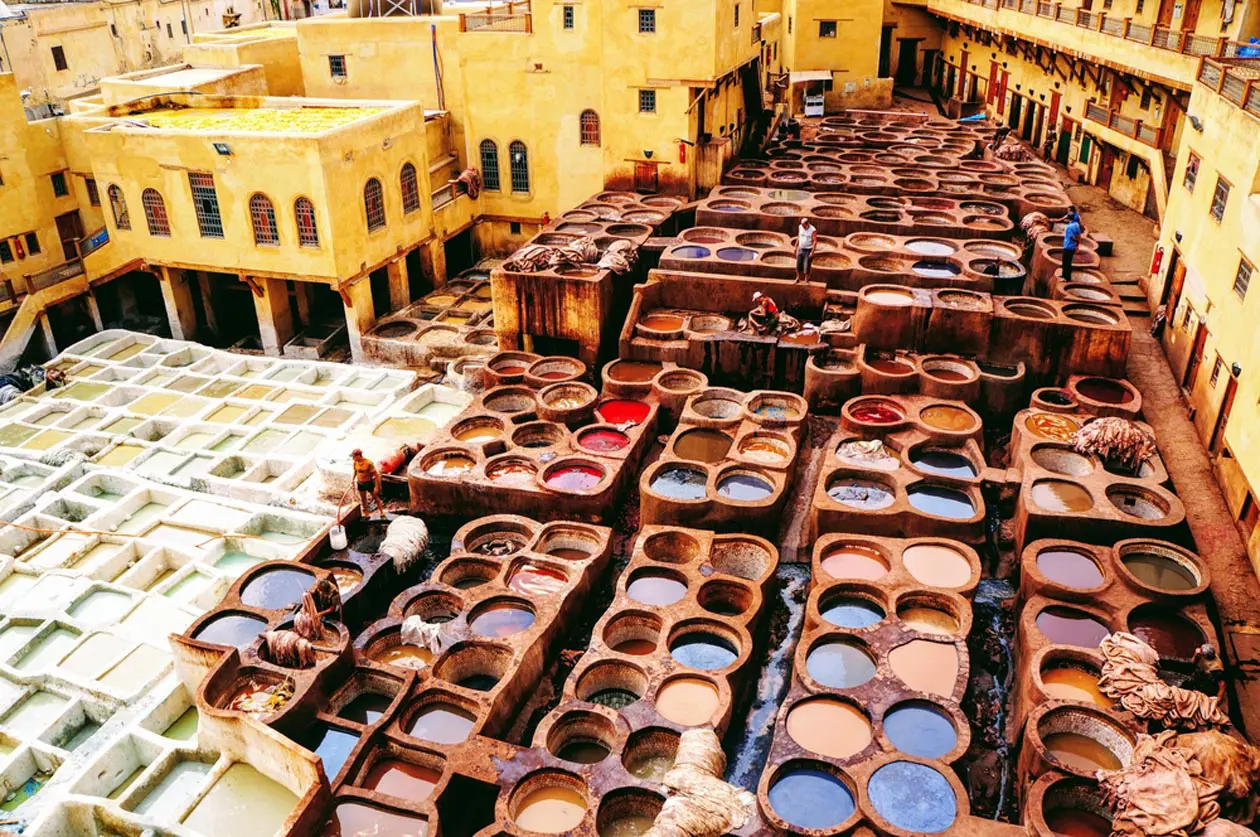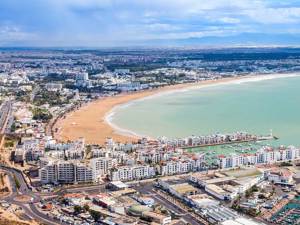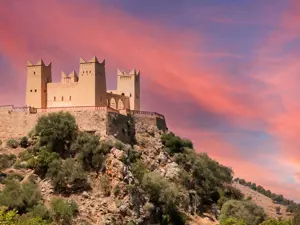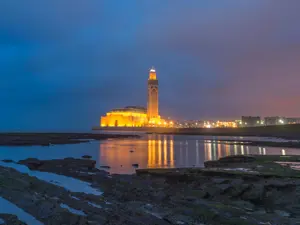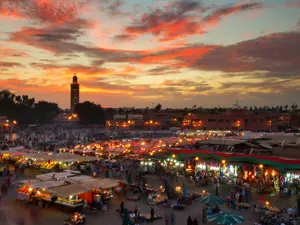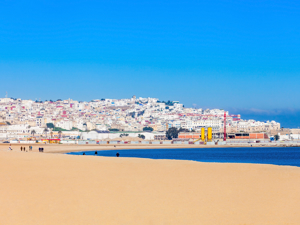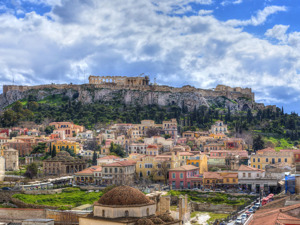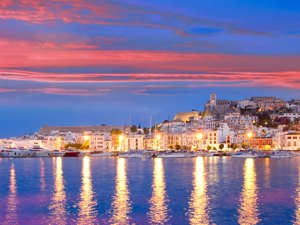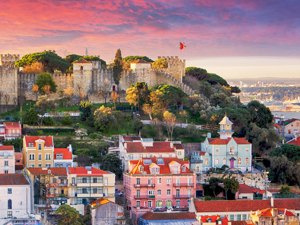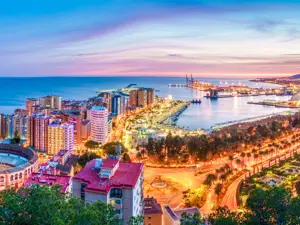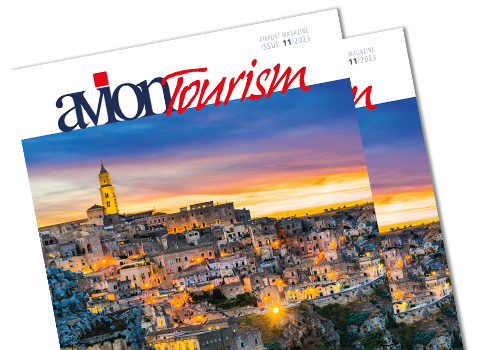The most authentic of Morocco’s imperial cities
Fez, is considered the intellectual and craftwork capital of the country, with a strong Arab identity and a charm that is reflected in the signs left by great dynasties. Sitting on the plain of Oued, Fès celebrated its 1,200 year anniversary in 2008: an event that has projected the city into a dimension of great tourist and cultural attraction.
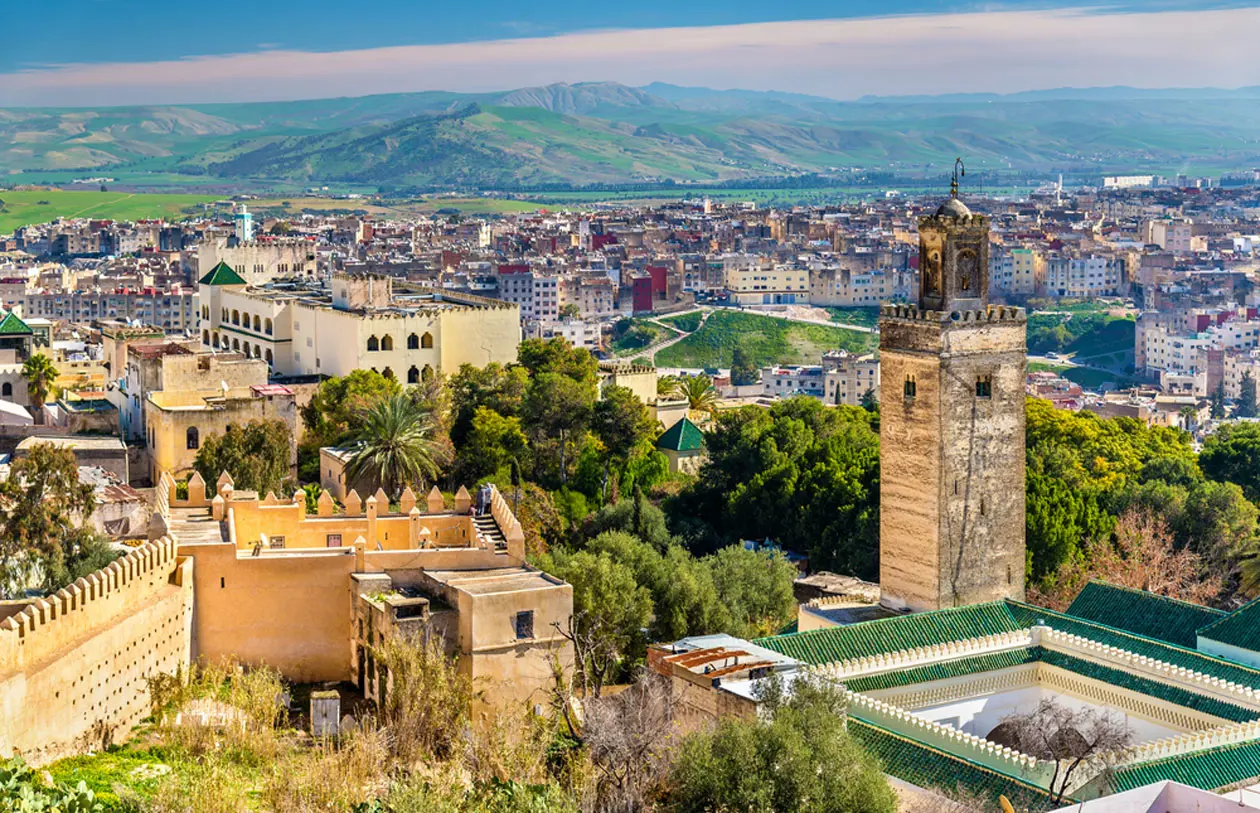
Fès Photo: Copyright © Sisterscom.com, Shutterstock
The splendour of its architecture has remained intact and appears as it was in the XIV century when it became capital of a powerful empire, assuming a cosmopolitan feel thanks to the meld of people from Muslim Spain and Arabs from the East.
A gem with a glorious past, Fès is a labyrinth of colours, voices and perfumes dotted with beautiful buildings. The city is divided into three large districts: Fès El Bali and Fès El Jedid make up the historical nucleus, which with its buildings, markets and mosques is one of the most attractive in the Islamic world, and the Ville Nouvelle, built by the French from 1916. The modern city, with its wide boulevards, is crossed from one end to the other by Avenue Hassan II, a tree-lined street with fountains.
Fès El Jedid
The royal palace of Dar El Makhzen stands in Fès El Jedid. The palace has golden doors, a very elegant ivory facade and Saracen tiles of pine green. The building faces a open area from where the Bou Khessissat road, with its wooden and wrought iron houses, begins.
Fès El Bali
Fès El Bali is the ancient medina, the oldest and most beautiful part of the city, the largest medieval Islamic city in the world and considered a UNESCO world heritage site. Its narrow winding roads can only be covered on foot. Often the cry “balek”, meaning look out, can be heard coming from the drivers of donkey trains, which is the only method of transport used in the medina able to tackle the steep alleys.
Now and again open spaces or small squares appear, with markets of every kind selling craft products in wood, metal and leather, and many different craft shops, including tanneries with their enormous coloured vats for dying leather. Tanners practise one of the oldest professions, and the business is handed down from father to son.
This part of the city has maintained its beauty and the number of treasures hidden inside is remarkable. Is possible to admire: the medersa Bou Inania (Islamic school), built with marble, gypsum and onyx, is a masterpiece of decoration and calligraphy; the foundouk Ennejjarin (Nejjarine) is famous for its elegant facade; the El Attarine medersa for its marble and alabaster columns; the Kairaouine mosque for its beautiful court yard, seat of one of the oldest Islamic universities and still one of the principal intellectual centres of the Maghreb.
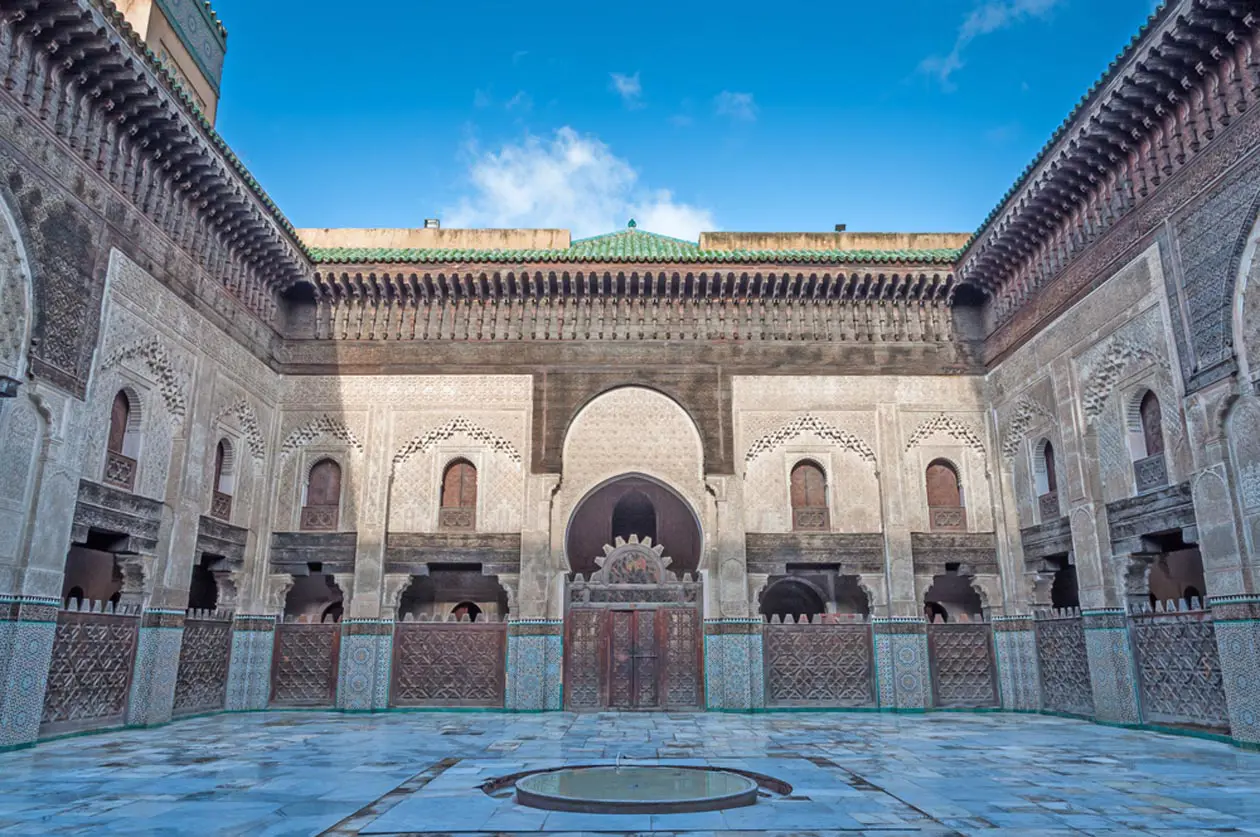
Madrasa Bou Inania Photo: Copyright © Sisterscom.com, Shutterstock
Moroccan cuisine
It is a varied cuisine that has undergone Berber, Moorish, Mediterranean and Arabic influences throughout its long history. In the royal cities of Fès, Meknès, Marrakech, Rabat and Tétouan the different chefs perfected the recipes in their respective kitchens, over time creating the basis of what we know today as Moroccan cuisine.
Three of the most well-known dishes are couscous of Berber origin, bstalh (or bestilla), tajine, rafisa, shua (i.e. Moroccan barbacue), tanjia and harira, a soup served with dates. Among the desserts there is the kaab el ghzal a pastry filled with almond paste and covered with sugar, the halva shebakia, fried dough with honey sprinkled with sesame seeds and the halva shebakia biscuits. Among the drinks, the most popular is mint tea prepared with a unique technique that enhances its flavor.
Three of the most well-known dishes are couscous of Berber origin, bstalh (or bestilla), tajine, rafisa, shua (i.e. Moroccan barbacue), tanjia and harira, a soup served with dates. Among the desserts there is the kaab el ghzal a pastry filled with almond paste and covered with sugar, the halva shebakia, fried dough with honey sprinkled with sesame seeds and the halva shebakia biscuits. Among the drinks, the most popular is mint tea prepared with a unique technique that enhances its flavor.
Text by Eugenio Sorrentino
Updated by Alisè Vitri
Avion Tourism Magazine
Photos for editorial use only: Copyright © Sisterscom.com, Shutterstock
All rights reserved Copyright © Sisterscom.com
Tourism Board
www.visitmorocco.com
Partnership with Booking.com
Where to sleep in Fez
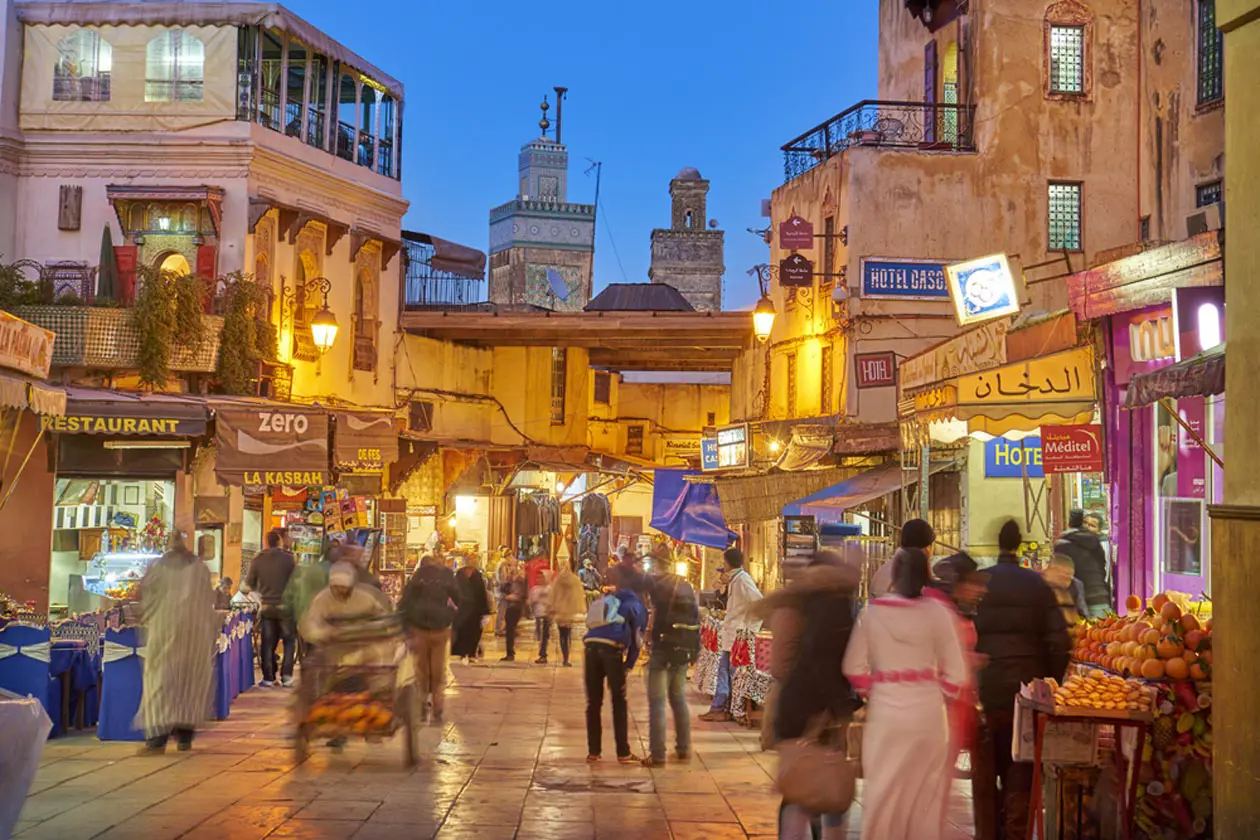
Fez Photo: Copyright © Sisterscom.com, Shutterstock
Fez is a welcoming city and offers different possibilities for accommodation.
To find the ideal hotel and the best offers you can do a search for the stars but also for districts or landmarks.
LANDMARKS
Hotels in tourist areas
WHERE TO GO IN FEZ
Monuments in Fez

Photo: Copyright © Sisterscom.com, Shutterstock
KARAOUIYINE MOSQUE
The Karaouiyine mosque is one of the most imposing in Morocco. It houses a university which is thought to be the oldest in the world and which was founded in the middle of the 9th century at a time when theology, grammar and Koranic law were the basic subjects taught. The El-Attarine Medersa, situated opposite it, is considered to be the most beautiful in the medina.

Photo: Copyright © Sisterscom.com, Shutterstock
EL-ATTARINE
The Merenids built this masterpiece between 1323 and 1325. Its central courtyard is magnificently decorated. All types of spices await you in the El Attarine souk. Their palette of bright colours and appetizing fragrances recall the town's fine culinary reputation dating back to the Arabo-Andalusian tradition in the 13th century. You will, also, be able to find natural cosmetics. An alley separates the El-Attarine from the Joutia souk, the salt and fish market.

Photo: Copyright © Sisterscom.com, Shutterstock
BOU INANIA
This medersa, built between 1350 and 1357, is the biggest in Fès. Pass through the magnificent entrance with its heavy copper work doors, and then be impressed by the abundance of earthenware, the refinement of the sculptured wood and plaster and the chiselled stalactites called mukarnas, the hallmark of Merenid architecture. A canopy of typical Fès green tiles surmounts the onyx and marble courtyard.

Photo: Copyright © Sisterscom.com, Shutterstock
MEDINA OF FEZ
The old part of Fes with its numerous souks is a paradise for craftsmen Stroll through its alleys in order to discover the architectural marvels found there. Adobe and brick walls, pillars decorated with zelliges (mosaic tiling) and climbing patios are among the gems of the medina's architecture.
Museums in Fez

Photo: Copyright © Sisterscom.com, Shutterstock
DAR BATHA MUSEUM
The Dar Batha Museum is specialised in the arts and crafts of Fes and so will give you a good overview of all the handicraft made in a town renowned for the skill of its different guilds. The potters and ceramists are probably the most outstanding. The cobalt blue tin glazing has become the standard for the craftsmen of the town. Among its treasures, is possible to admire its collection of astrolabes from the 11th to 18th centuries.

Photo: Copyright © Sisterscom.com, Shutterstock
WOODEN ARTS AND CRAFTS MUSEUM
The Wooden Arts and Crafts Museum is situated in one of the most beautiful buildings in Fes, the En-Nejjarine Foundouk. Collections of different objects are exhibited in the old cells of this caravanserai. Wooden furniture can easily be purchased in the neighbourhood.
BELGHAZI MUSEUM
In the Belghazi Museum the ethnographic collection traces the history of Fes handiwork from the 15th century and illustrating it by jewellery, costumes and other everyday items. The museum extends on a surface from 7.000 square metres and its galleries of exposure hold more than 5000 parts.
Excursions in Fez

Photo: Copyright © Sisterscom.com, Shutterstock
VOLUBILIS
Situated at about 73 km west of Fès, is the most important antique city in Morocco. It is a large Roman town with superb mosaics and many buildings like the triumphal arch, the press-house and the capitol and which has been designated as a Unesco World Heritage Site.

Photo: Copyright © Sisterscom.com, Shutterstock
ROYAL GOLF in FEZ
A golf course was created at the foot of the Atlas mountains in 1994. The Royal Golf Club of Fes is a very enjoyable course designed by the architect Cabell B. Robinson who also designed several other renowned golf courses in Morocco. Situated in a beautiful olive grove, golfers encounter lakes and gigantic bunkers; the largest covers 1200m².
SEFROU
Don't miss Sefrou and the Sebou Gorge, a spectacular canyon which are just at 33 km south-east of Fès. Another pleasant trip: the waterfalls of the Aggaï oued.
MOULAY YACOUB SPA
The Moulay Yacoub hot springs. These are renowned for their curative properties but are also excellent for your relaxation. This luxurious spa town has professional teams.
Partnership with GetYourGuide
Tours and excursions
News & Useful info
You might be interested in
Other destinations
Airports nearby Fez

